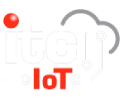In a fast-paced business environment where information is the primary currency innovation is vital. The accounting industry is experiencing a major shift in the way audits are conducted, thanks to the latest technologies, such as blockchain, artificial intelligence (AI) and data analytics and robotic procedure automation revolutionizing processes and providing more efficient and effective results for clients.
The ability to rapidly process and organize huge volumes of complex data at a pace previously unimaginable is allowing auditors to provide more insightful insights than ever before. The use of sophisticated analytical tools allows auditors to detect unusual transactions, patterns that are not apparent or other problems they would not otherwise notice, and to modify their risk assessment procedures to suit. These tools can also assist to identify potential future issues, and to predict the company’s performance.
Automation and specialized software are also reducing the amount of manual work and reviewing. For instance, Argus is an AI-enabled document analysis tool that makes use of natural machine learning and language processing to quickly analyze electronic documents, and is used by Deloitte auditors to accelerate the review of electronic documents, enabling more focus on high-value tasks like checking for risk and verifying findings.
Despite these benefits however, many obstacles have been identified that hinder the full implementation of technology in the audit process. Research has demonstrated that a variety of factors, including person, task, and environment which can impact the use of technology in audit. This includes the perceived effect on independence as well as a lack of clarity around the regulatory response to the use of technology which can affect the desire for implementing it in practice.
https://data-audit.net/2022/01/04/3-reasons-to-invest-in-document-compliance

